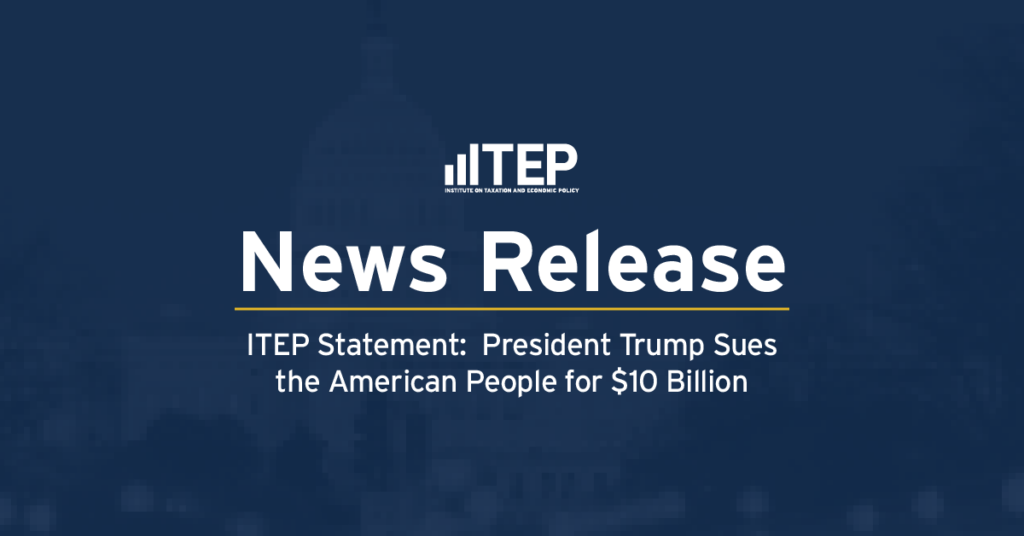After a floor session that began in the middle of the night, the House of Representatives has passed its reconciliation bill including massive tax cuts and deep cuts to spending.
Statement from Amy Hanauer, Executive Director of the Institute on Taxation and Economic Policy:
“It’s not surprising that this bill was written behind closed doors and rushed through in the night before Americans had a chance to see what it contains. This bill extends enormous tax cuts to those who have the most. It will increase inequality, reduce health coverage, and take food from people’s tables, all to shower the wealthiest people in this country and foreign investors with tax breaks. In the end, this reconciliation bill redistributes resources up the income scale, widening the already-huge chasm between the rich and the rest of us.”
Resources from ITEP (more will be coming as soon as today; I will share our resources with you as they become available):
Analysis of Tax Provisions in the House Reconciliation Bill: Preliminary National Estimates
The poorest fifth of Americans would receive 1 percent of the bill’s net tax cuts in 2026 while the richest fifth of Americans would receive two-thirds of the tax cuts. The richest 5 percent alone would receive a little less than half of the net tax cuts that year.
The House Tax Plan, By the Numbers
The vast majority (85 percent) of the tax bill represents an extension of the temporary portions of the same tax cuts first enacted by Republicans on a temporary basis in 2017. Of the remainder, only a small sliver are the highest-profile items getting an outsized share of the attention in the current tax debate.
House Tax Bill Enlists the Wealthy to Spread Private School Vouchers
The tax plan moving through the U.S. House of Representatives includes a provision granting extraordinarily generous treatment to nonprofits that give out vouchers for free or reduced tuition at private K-12 schools. While the bill significantly cuts charitable giving incentives overall, nonprofits that commit to focusing solely on supporting private K-12 schools would be spared from those cuts and see their donors’ tax incentive almost triple relative to what they receive today. On top of that, the bill goes out of its way to provide school voucher donors who contribute corporate stock with an extra layer of tax subsidy that works as a lucrative tax shelter. Essentially, the bill allows wealthy individuals to avoid paying capital gains tax as a reward for funneling public funds into private schools.
House Tax Bill Would Encourage Dynastic Wealth Hoarding by Further Weakening the Estate Tax
The sprawling tax and spending bill before the House of Representatives would cut more than $200 billion from food assistance, potentially affecting 4 million children and 7 million adults, while providing an estate tax cut costing roughly the same amount to a few thousand people who will leave behind more than $7 million to their heirs.



